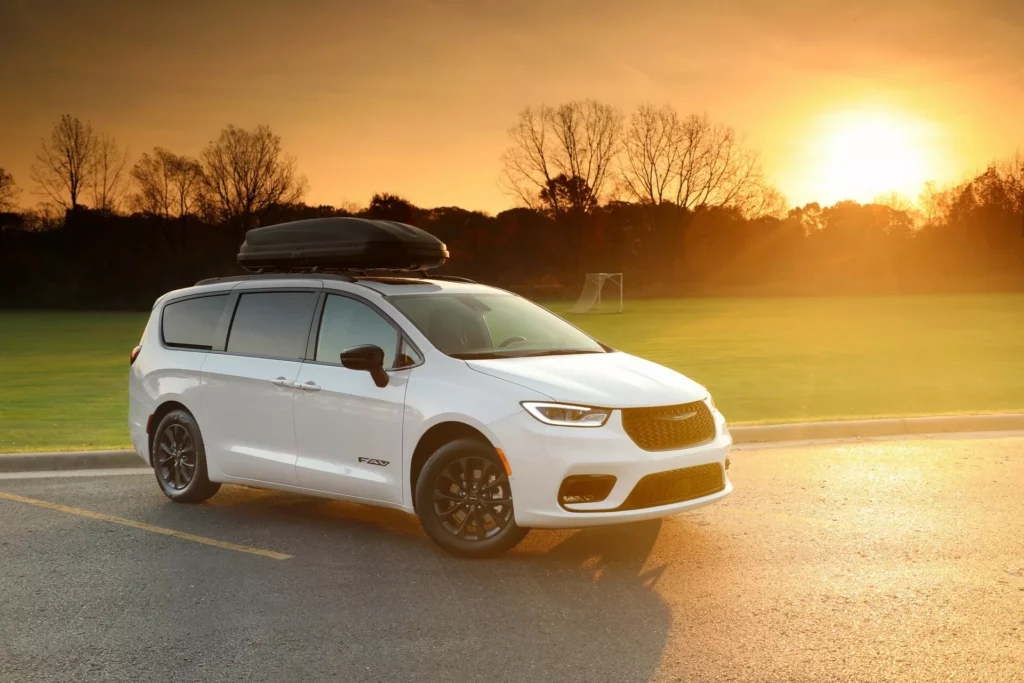- Canada will allow limited US-assembled vehicles tariff-free if firms keep Canadian operations strong.
- Brands cutting investment in the country will lose tariff-free import privileges under new trade rules.
- The USMCA agreement still applies but vehicles with non-Canadian parts face potential penalties.
In the ongoing back-and-forth between Canada and the US over trade, it’s no surprise that the auto industry is caught in the crossfire. Canada’s Federal Finance Minister has announced that car manufacturers who build vehicles in Canada will be able to import US-built vehicles without facing the nation’s retaliatory tariffs. While this relief is small in the grand scheme of the auto industry, it’s still a positive move for automakers to take note of.
var adpushup = window.adpushup = window.adpushup || {que:[]};
adpushup.que.push(function() {
if (adpushup.config.platform !== “DESKTOP”){
adpushup.triggerAd(“0f7e3106-c4d6-4db4-8135-c508879a76f8”);
} else {
adpushup.triggerAd(“82503191-e1d1-435a-874f-9c78a2a54a2f”);
}
});
Earlier this week, Francois-Philippe Champagne clarified that automakers manufacturing in Canada would be allowed to import a specific number of US-assembled vehicles tariff-free, as long as those vehicles meet the requirements of the United States-Canada-Mexico Agreement (USMCA), or CUSMA, as Canada prefers to call it.
Read: Trump’s Tariffs Crush Canada’s Auto Industry As Thousands Threatened With Layoffs
However, Champagne also emphasized that the number of vehicles eligible for tariff exemption will be reduced if car manufacturers cut investments or production in Canada.
In retaliation to President Trump’s sweeping 25% tariffs on auto imports, Canada introduced its own 25% tariffs on U.S.-made vehicles. Prime Minister Mark Carney has been vocal about how Trump’s tariffs are damaging the closely intertwined American and Canadian auto industries.
“The North American automobile sector is the most integrated industrial manufacturing sector in the world, particularly the Canadian-U.S. auto sector,” Carney said in an interview with Bloomberg. “And so President Trump’s tariffs are an attempt in some degree to pull apart that integration and the benefits that come from that integration.”

Earlier this week, President Trump suggested he may temporarily exempt the vehicle industry from his tariffs, acknowledging these companies need more time should they decide to move production from Canada, Mexico, and other countries into the United States.
Canada’s response to Trump’s initial 25% tariffs specifically targets vehicles that don’t meet the requirements of the USMCA trade deal. However, vehicles that comply with the agreement but use parts sourced outside Mexico or Canada are also facing scrutiny.
var adpushup = window.adpushup = window.adpushup || {que:[]};
adpushup.que.push(function() {
if (adpushup.config.platform !== “DESKTOP”){
adpushup.triggerAd(“bb7964e9-07de-4b06-a83e-ead35079d53c”);
} else {
adpushup.triggerAd(“9b1169d9-7a89-4971-a77f-1397f7588751”);
}
});

var adpushup = window.adpushup = window.adpushup || {que:[]};
adpushup.que.push(function() {
if (adpushup.config.platform !== “DESKTOP”){
adpushup.triggerAd(“bb7964e9-07de-4b06-a83e-ead35079d53c”);
} else {
adpushup.triggerAd(“9b1169d9-7a89-4971-a77f-1397f7588751”);
}
});
#Canada #Cars #Tariff #Free #Play #Nice


